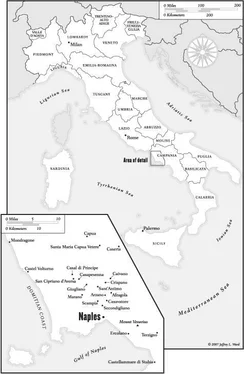Roberto Saviano - Gomorrah - A Personal Journey into the Violent International Empire of Naples’ Organized Crime System
Здесь есть возможность читать онлайн «Roberto Saviano - Gomorrah - A Personal Journey into the Violent International Empire of Naples’ Organized Crime System» весь текст электронной книги совершенно бесплатно (целиком полную версию без сокращений). В некоторых случаях можно слушать аудио, скачать через торрент в формате fb2 и присутствует краткое содержание. Жанр: Старинная литература, на английском языке. Описание произведения, (предисловие) а так же отзывы посетителей доступны на портале библиотеки ЛибКат.
- Название:Gomorrah: A Personal Journey into the Violent International Empire of Naples’ Organized Crime System
- Автор:
- Жанр:
- Год:неизвестен
- ISBN:нет данных
- Рейтинг книги:5 / 5. Голосов: 1
-
Избранное:Добавить в избранное
- Отзывы:
-
Ваша оценка:
- 100
- 1
- 2
- 3
- 4
- 5
Gomorrah: A Personal Journey into the Violent International Empire of Naples’ Organized Crime System: краткое содержание, описание и аннотация
Предлагаем к чтению аннотацию, описание, краткое содержание или предисловие (зависит от того, что написал сам автор книги «Gomorrah: A Personal Journey into the Violent International Empire of Naples’ Organized Crime System»). Если вы не нашли необходимую информацию о книге — напишите в комментариях, мы постараемся отыскать её.
Gomorrah: A Personal Journey into the Violent International Empire of Naples’ Organized Crime System — читать онлайн бесплатно полную книгу (весь текст) целиком
Ниже представлен текст книги, разбитый по страницам. Система сохранения места последней прочитанной страницы, позволяет с удобством читать онлайн бесплатно книгу «Gomorrah: A Personal Journey into the Violent International Empire of Naples’ Organized Crime System», без необходимости каждый раз заново искать на чём Вы остановились. Поставьте закладку, и сможете в любой момент перейти на страницу, на которой закончили чтение.
Интервал:
Закладка:
Various inquiries by the Naples Anti-Mafia Public Attorney’s Office revealed that when the La Torre legal track was in crisis, the criminal one was immediately activated. If cash was short, they had counterfeit bills printed; if capital was needed in a hurry, they sold bogus treasury bonds. They annihilated the competition through extortions and imported merchandise tax-free. Scratching the record of the legal economy means that clients get steady prices, bank credits are always honored, money continues to circulate, and products continue to be consumed. Scratching reduces the separation between the law and economic imperative, between what regulations prohibit and what making money demands.
Foreign deals meant that British participation in various levels of La Torre clan activity was indispensable; some Brits even became affiliates. One of these is a British Camorrista, incarcerated in Great Britain. His name cannot be spoken in the Queen’s land because association with the Mafia is not recognized as a crime there, where it is easy for someone who belongs to a Mafia organization to hide behind their libel laws. And since Great Britain doesn’t recognize the crime, it often doesn’t recognize the accusations either. An immaculate criminal record means that words must be mute. And yet this British Camorrista receives a stipend from Mondragone every month, Christmas bonus included. In addition to physical protection, affiliates are normally guaranteed a salary, legal assistance, and clan cover if needed. Yet to receive assurances directly from the boss, this Camorrista had to have played a vital role in clan business, unquestioningly the number one British Camorrista in Italian criminal history.
I’d heard talk of this British Camorrista for years, even though I’d never seen him, not even in a photograph. When I got to Aberdeen, I couldn’t help but ask about him, Augusto La Torre’s trustworthy ally, the man who, knowing only the syntax of business and the grammar of power, effortlessly dissolved any residual relations with ancient Highlands clans in order to join the Mondragonesi. There was always a bunch of local kids hanging out at the La Torre pubs—not the lazy, rebellious, petty-criminal types nursing a pint of beer, waiting for a punch-up or a purse snatching, but quick-witted kids involved at various levels of legal businesses. Transportation, advertising, marketing. When I asked about him, I didn’t get hostile stares or vague answers, as I would have if I’d asked in Campania about an affiliate. It seemed they’d known him forever, but he’d probably become a mythical figure everyone talks about. He was the man who had made it. Not like them, not just someone with a steady salary, an employee in a restaurant, company, store, or real estate agency. The British Camorrista was more than that. He had fulfilled many a young Scot’s dream not to simply work legally, but to become part of the System, a working member of the clan. To become a Camorrista in every respect— despite the disadvantage of a Scottish birth, which means believing that the economy has just one route, belonging to everyone, the banal economy of rules and defeats, of mere competition and prices. I was shocked to discover that in Scotland my English, spoken with a fat Italian accent, did not make me an emigrant in their eyes, the skinny deformation of Jake La Motta—the Raging Bull—or a criminal invader, come to suck money out of their land; they heard instead the grammar of the economy’s absolute power, a power that decides everything about everything, unlimited even by life in prison or death. It seemed impossible, yet they clearly knew Mondragone, Secondigliano, Marano, Casal di Principe; they’d heard about these places, as if in an epic of a faraway land, from the bosses who’d come through here or eaten at the restaurants where they worked. For my Scottish peers, to be born in the land of the Camorra was an advantage; it meant you had something that enabled you to perceive the existence of an arena where entrepreneurship, arms, and even your own life are only and exclusively a means to money and power, the things that make living worthwhile, that put you at the center of your day, without having to worry about anything else. The British Camorrista had done it, even without being born in Italy, even without ever seeing Campania or driving for miles past construction sites, dumps, and buffalo farms. He had become a man of real power. A Camorrista.
This grand organization of international commerce and finance did not earn the clan flexibility at home, however. Augusto La Torre wielded his power harshly in Mondragone. He had to be ruthless to create such a powerful cartel. Weapons, hundreds of them, were ordered from Switzerland. His political tactics varied from aggressive contract management to alliances to sporadic contacts; he allowed his deals to solidify, making sure politics fell in line with his business. Mondragone was the first Italian town whose government was dissolved in the 1990s because of Camorra infiltration. Over the years, politics and the clan never really separated. In 2005 a Neapolitan fugitive found hospitality in the home of a candidate in the outgoing mayor’s party. And for a long time, the daughter of a traffic police officer accused of collecting La Torre bribes represented the majority party on the town council.
Augusto was harsh on politicians as well. All who opposed the family business received cruel exemplary punishments. The method for physically eliminating La Torre enemies was always the same, and in criminal jargon it came to be referred to as Mondragone-style. The technique consists in brutally beating the body, throwing it in a country well, then tossing in a hand grenade, so the body is torn to shreds and the earth covers the remains, which sink into the water. This is what Augusto La Torre did to Antonio Nugnes, the Christian Democrat deputy mayor who disappeared into thin air in 1990. Nugnes represented an obstacle in the clan’s desire to directly manage municipal contracts and have a hand in all political and administrative matters. Augusto La Torre didn’t want allies. He wanted to run everything himself. Military decisions were not heavily pondered then. First you shot and then you reasoned. Augusto was young when he became the boss of Mondragone. He wanted to become a stockholder in a private clinic that was being built, and Nugnes held a significant number of shares. The Incaldana clinic was one of the most prestigious in Lazio and Campania, and a stone’s throw from Rome; it would attract a good number of businessmen from southern Lazio, thus solving the problem of the lack of quality hospitals on the Domitian coast and in the Pontine Marshes. Augusto insisted the clinic’s board of directors accept his dauphin, another clan businessman who had gotten rich running a dump, as the family representative. Nugnes was opposed; he realized that La Torre’s strategy was more than simply about getting in on a huge deal. So Augusto sent an emissary to the deputy mayor to try to soften him up, convince him to accept his terms. For a Christian Democrat to have contact with a boss and reckon with his business and military power wasn’t all that scandalous. Clans were the primary economic force in the area; refusing a relationship with them would be like the deputy mayor of Turin refusing to meet with the top management of Fiat. Augusto La Torre’s idea wasn’t to buy shares at a good price, as a more diplomatic boss would have done. He wanted them for free. In exchange he would guarantee that all his companies that won contracts for service, cleaning, catering, transportation, and guarding would do their job professionally and at favorable fees. He even assured Nugnes his buffaloes would produce better milk. On the pretense of a meeting with the boss, Nugnes was picked up at his agricultural business and taken to a farm in Falciano del Massico. According to Augusto’s testimony, waiting with him for Nugnes were Girolamo Rozzera, known as Jimmy, Massimo Gitto, Angelo Gagliardi, Giuseppe Valente, Mario Sperlongano, and Francesco La Torre. All waiting for the ambush. The deputy mayor got out of the car and went to say hello to the boss. Augusto told the judges that as he put out his hand to greet Nugnes, he mumbled to Jimmy:
Читать дальшеИнтервал:
Закладка:
Похожие книги на «Gomorrah: A Personal Journey into the Violent International Empire of Naples’ Organized Crime System»
Представляем Вашему вниманию похожие книги на «Gomorrah: A Personal Journey into the Violent International Empire of Naples’ Organized Crime System» списком для выбора. Мы отобрали схожую по названию и смыслу литературу в надежде предоставить читателям больше вариантов отыскать новые, интересные, ещё непрочитанные произведения.
Обсуждение, отзывы о книге «Gomorrah: A Personal Journey into the Violent International Empire of Naples’ Organized Crime System» и просто собственные мнения читателей. Оставьте ваши комментарии, напишите, что Вы думаете о произведении, его смысле или главных героях. Укажите что конкретно понравилось, а что нет, и почему Вы так считаете.












